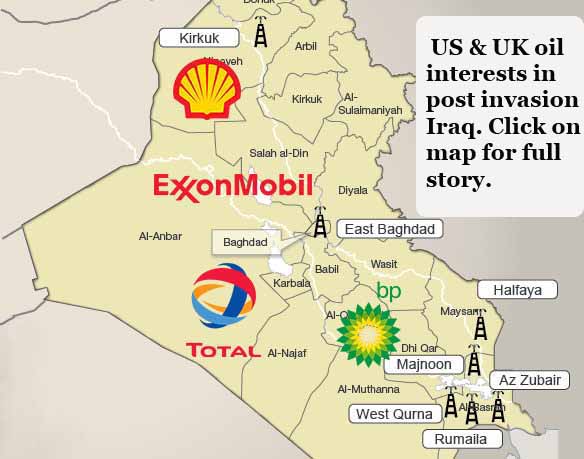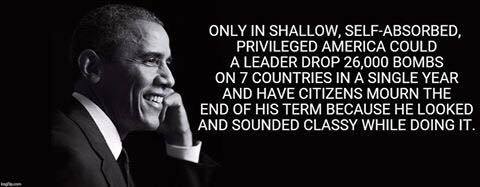this post also features in offguardian
If I and a hundred likeminded others devoted ourselves 24/7 to rebutting the drivel above and below the line in the Guardian, we couldn’t make a dent. It would be like despatching midges, in August on a Highland bog, by crushing them one by one between thumb and forefinger.
So I seldom bother. But a few instances this year have seen me obliged to make some sort of response to twaddle too egregious to let pass. One was Matthew d’Ancona’s smug desire to see market forces rein in the purveyors of ‘fake news’ via the kitemarking of such online crusaders for truth as Full Fact, led by tory party donor Michael Samuels.
The other two were below the line. In an exchange with one btl commentator, back in April and over – what else? – Syria, I was told the idea of oil being a factor in the invasion of Iraq had been ‘thoroughly debunked’. I felt it incumbent, though it’s generally easier on such matters to spout nonsense than refute it, to put him straight on this small point.
More recently a commentator correctly asserted that the Guardian had supported the invasion of Iraq. This drew flat contradiction from another to the effect that, au contraire, the Graun had opposed the war. I let it pass but, for reasons too mundane to test your patience with, it popped into my head today between lunch and walking the woofer.
A click or two of the mouse and here we are: an Observer editorial (pedants note, Observer is a sister of The Guardian within Guardian Media Group) of Sunday, January 19, 2003. Its title? Iraq: the case for decisive action. The case, not to put too fine a point on things, for a war which – sanctions having already killed 500,000 children – proceeded with Shock And Awe to:
- blast Iraq with depleted uranium (aka chemical warfare) …
- snuff out the lives – and I’m being ultra conservative here – of hundreds of thousands of Iraqi civilians …
- stoke the flames of Salafist terror …
- give us the infamies of Abu Ghraib …
- and – because, guess what, it turns out oil was indeed an incentive – enrich the very men who’d taken the decision to invade.
Of course, this was all a very long time ago, and things have changed massively since then. I mean, we’ve had that nice Mr Obama to restore America’s honour and soul …
… and it’s such a crying shame the delightful Mrs Clinton wuz robbed by the Russians.
But though it was such a long time ago, and though so much has got better since, here’s how the Guardian – oops, Observer – began that January 2003 editorial.
A war with Iraq has become more likely in the past week. Thursday’s discovery of undeclared poison gas shells was insufficient to trigger war alone. But here was the first concrete, and predictable, confirmation that Iraq’s co-operation with Hans Blix’s UN weapons inspectors has been less than complete. And Saddam Hussein’s defiant speech on Friday even disappointed those who still hope that the Iraqi leader might choose comfortable exile in Libya or Belarus.
One thing which has been stressed too little in recent weeks is that it is Iraq’s choices that have brought war closer. The debate in Britain and Europe continues to focus largely on what America is doing and why. Too often, it is overlooked that it is Iraq which remains, at the eleventh hour, in defiance of the will of its region and the wider world. That will is still to find a sensible resolution to the current crisis without war. The coercive diplomacy that could yet lead to Saddam’s disarmament or his disposal by his own side must be pursued. Indeed, the military build-up remains the best strategy for seeking to disarm him, short of war. Yet he still shows signs of frustrating the demands of December’s UN resolution. If this continues, few analysts doubt that the United States will seek support for a military attack. It is becoming equally clear that Tony Blair’s Britain would participate. Would we be right to do so?
There are good – and bad – arguments for and against military intervention. And there are some on both sides who have relied on weak and intellectually dishonest positions to further their own cause. It devalues debate to belittle Tony Blair as ‘President Bush’s poodle’ – and the crude anti-Americanism which often accompanies this charge also overlooks the nuanced way in which the Prime Minister has sought with some success to influence the approach of his superpower ally. It is similarly unilluminating when detractors dismiss the Bush presidency as ‘stupid’. The President, regardless of his own capacities, is surrounded by some brilliant advocates of his visceral beliefs. Equally, however, it does not help casually to conflate any threat from Saddam with that from al-Qaeda, rather than detailing the demonstrable dangers posed by Iraq itself.
The arguments for coercive pressure may well end in war. But they combine two laudable motivations. The first is the nature of Saddam Hussein’s regime and the call by many Iraqi exiles and dissidents for him to be overthrown. The appalling 1980s nerve-gasing of the Kurds is well documented. Less widely appreciated is that there are few Iraqi families which have not suffered directly, either in the massacres which crushed the 1991 uprisings, or by the violence routinely deployed by Iraq’s secret police. Both Bush and Blair could have emphasised more just how bad Saddam’s republic of fear has been for his people and the extent to which ending it is a desirable end in itself.
They could also have stressed more energetically that this dispute is not about oil …
Couldn’t happen these days, could it? Not with so sternly vigilant a monitor of arrant power as Guardian Media Group holding it to account.



I hadn’t seen this article before because I didn’t take the Observer, only the Guardian daily. Yesterday I learned that the terrorists in Idlib took delivery of more CW and transported it to a village five miles away. This means that at the instigation of France, the UK and the US reiterating their warnings against Assad using chemical weapons, more Syrians especially children will die in yet another false flag, to accommodate the Imperialist likely retaliation against the Syrian people. Leading the false allegations of Assad’s murderous CW attacks against his own people will be the most culpable for false propaganda – The Graun, probably George Monbiot. I don’t think any toilet rag has done so much to promote lies and deceptions as the Graun who now, are nothing more than puppets to their successful US sister publication which is only allowed to exist as long as it repeats the Washington War Agenda, presumably despatched daily to them from the Pentagon. Now that TBTB have conspired with all parties involved to silence the truth, their lies will be the only distorted facts available – it’s only a matter of time before they start shutting down blog sites in earnest.
1984 all over again, but this time for real.
I think you refer to this, Susan. But Guardianista may safely disregard it. I mean, it’s in Russia Today innit? They have propaganda, innit? Whereas We have Freedom Of The Press – and what’s that numpty, Noam Chomsky, on about with his “big corporations selling privileged audiences to other big corporations”? And We have media run by and for corporate interests which, though they’ve perfected the art and science of opinion manufacture through commercial advertising, would never dream of using knowledge so gained to mould our views on such as Syria.
Bah.